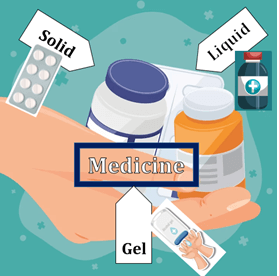
The 7 Important Medicines at Home: Managing Common Health Issues
The Importance of Keeping a Basic Set of Medicines at Home: Managing Common Health Issues
Medicines at Home: Managing Common Health Issues: Having a basic set of medicines at home can be a game-changer when it comes to managing everyday health issues and emergencies. From a sudden headache to minor cuts and scrapes, keeping essential medications within arm’s reach can help prevent discomfort and promote quick recovery, all while avoiding a trip to the doctor for minor ailments. With proper preparation, you can be more self-reliant and ready to address many common health concerns efficiently and effectively.
In this guide, we’ll explore why it’s important to keep a basic set of medicines at home, the types of medications to consider, their benefits, and how they can help manage various health issues.
Why Keep a Basic Set of Medicines at Home?
1. Convenience:
- Having medicines readily available at home can save you time and prevent unnecessary trips to the pharmacy, especially when health issues arise outside of regular office hours or in emergencies.
- Whether you’re dealing with a headache, mild fever, stomach upset, or a minor injury, you won’t have to search for medications or wait for a prescription.
2. Immediate Relief:
- Health issues like pain, fever, or nausea can occur unexpectedly. Keeping essential medications at home ensures that you can relieve symptoms quickly and avoid prolonged discomfort.
3. Cost-Effective:
- For minor health concerns, seeing a doctor or visiting an urgent care center can be expensive. A basic home medicine kit helps you avoid unnecessary medical bills by managing symptoms and ailments at home.
4. Peace of Mind:
- Being prepared with a stock of basic medicines can offer comfort during stressful situations. Whether it’s a small injury or a bout of flu, having the right medicine on hand can help you feel more in control.
What Medicines Should You Keep at Home?
Here’s a list of essential medicines that should be part of your basic home medicine kit:
1. Pain Relievers:
- Paracetamol (Acetaminophen): Ideal for headaches, fever, and mild pain relief.
- Ibuprofen: An effective anti-inflammatory drug that also reduces pain and fever.
- Aspirin: Useful for pain, fever, and preventing blood clot formation in some individuals (with medical advice).
2. Antiseptic Solutions:
- Hydrogen Peroxide: Helps to disinfect cuts, scrapes, and minor wounds to prevent infection.
- Betadine (Povidone-Iodine): A popular antiseptic for wound cleaning and infection prevention.
3. Anti-Allergy Medications:
- Cetirizine or Loratadine: Non-drowsy antihistamines to relieve symptoms from seasonal allergies, rashes, or insect bites.
- Hydrocortisone Cream: A topical steroid that helps with inflammation or allergic reactions on the skin.
4. Gastrointestinal Relief:
- Antacids (e.g., Ranitidine): Useful for relieving acid reflux, heartburn, or indigestion.
- Loperamide (Anti-Diarrheal): Helps reduce the symptoms of diarrhea and stomach discomfort.
- Oral Rehydration Solution (ORS): Prevents dehydration, especially during diarrhea or vomiting.
5. Cold and Flu Medications:
- Decongestants: These medications help clear nasal congestion during colds and flu.
- Cough Syrup: Both expectorants (which help clear mucus) and suppressants for dry cough.
- Throat Lozenges: Provide soothing relief for sore throats and help reduce irritation.
6. Topical Treatments:
- Calamine Lotion: Calms itchy skin caused by rashes or insect bites.
- Antibiotic Ointment: A must for preventing infection in small cuts and wounds.
7. Bandages and Dressings:
- Adhesive Bandages: For covering minor cuts, blisters, or abrasions.
- Gauze Pads and Medical Tape: For larger wounds or injuries requiring proper dressing.
8. Thermometer:
- A thermometer is essential for accurately monitoring body temperature, especially when dealing with fever.
9. First Aid Supplies:
- Cotton Swabs & Cotton Balls: Useful for cleaning wounds or applying medication.
- Tweezers: Helpful for removing splinters, ticks, or other foreign objects.
- Scissors: To cut gauze, bandages, or tapes.
How These Medicines Help in Common Health Issues
Pain Relief:
Many common conditions, such as headaches, toothaches, menstrual cramps, or joint pain, can be quickly managed with pain-relieving medications like Paracetamol or Ibuprofen. These medicines help reduce pain and improve your ability to carry on with normal activities without disruption.
Infection Prevention:
For minor injuries like cuts, scrapes, or abrasions, having antiseptic solutions and antibiotic ointments on hand will allow you to disinfect and protect the area, reducing the risk of infection and promoting faster healing.
Fever and Cold Symptoms:
Medications such as Paracetamol and decongestants are ideal for managing symptoms associated with colds, flu, and fever. They can reduce fever, ease aches, and make breathing easier through congestion relief.
Gastrointestinal Relief:
If you experience a stomach bug, food poisoning, or mild digestive upset, having ORS or anti-diarrheal medications at home ensures you can stay hydrated and manage symptoms effectively. Antacids help soothe your stomach if you’ve eaten something that upset it.
Allergy Relief:
If you suffer from seasonal allergies or mild allergic reactions, antihistamines can offer relief from sneezing, itching, or swelling. Hydrocortisone cream is helpful for rashes or insect bites.
Key Points to Remember
- Use as Directed: Always follow dosage instructions on the label to avoid overuse or potential side effects.
- Check Expiry Dates: Medications lose their effectiveness or may even become harmful after the expiry date. Regularly check your home kit to ensure everything is within date.
- Consult a Doctor: For any chronic conditions or if you’re unsure about which medications are right for you, consult a doctor before assembling your kit.
- Proper Storage: Store your medications in a cool, dry place away from direct sunlight to ensure they remain effective.
- Have Extra Supplies on Hand: In case of emergencies, keep extras of essential items like bandages, antiseptics, and over-the-counter pain relievers.
Conclusion: A Basic Set of Medicines for Peace of Mind
Having a basic set of medicines at home is an important aspect of self-care and managing common health concerns. By stocking up on key medications like pain relievers, digestive aids, antiseptics, and allergy treatments, you can quickly address many minor health issues without unnecessary delays or expenses. Keep your medicine kit organized, check for expired products, and ensure you’re familiar with the uses and precautions of each medication.
Ultimately, a well-stocked medicine kit is a small investment that contributes significantly to your health and well-being, empowering you to handle everyday ailments and emergencies with confidence.






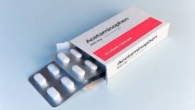
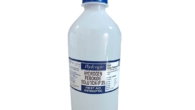

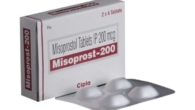
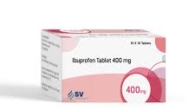
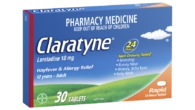
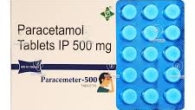
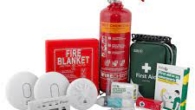
Inuikii — это европейский бренд, специализирующийся на стильной зимней обуви. Он сочетает уникальный стиль и высокое качество, создавая удобные модели для зимнего сезона. Бренд применяет натуральные мех и износостойкие материалы, обеспечивая защиту в любую погоду. Inuikii популярен среди любителей активного отдыха, благодаря оригинальным силуэтам и практичности.
http://friedmanfilmproductions.com/__media__/js/netsoltrademark.php?d=classical-news.ru%2Finuikii-stil-teplo-i-elegantnost-v-zimney-obuvi%2F
На этом сайте представлена полезная информация о терапии депрессии, в том числе у пожилых людей.
Здесь можно узнать методы диагностики и советы по улучшению состояния.
http://andesca.com/__media__/js/netsoltrademark.php?d=empathycenter.ru%2Farticles%2Fmeksidol-dlya-chego-naznachayut%2F
Особое внимание уделяется возрастным изменениям и их влиянию на психическим здоровьем.
Также рассматриваются эффективные медикаментозные и немедикаментозные методы лечения.
Статьи помогут разобраться, как справляться с депрессией в пожилом возрасте.
На этом сайте вы можете приобрести виртуальные мобильные номера разных операторов. Эти номера могут использоваться для регистрации профилей в разных сервисах и приложениях.
В каталоге представлены как долговременные, так и одноразовые номера, что можно использовать чтобы принять сообщений. Это простое решение если вам не хочет использовать личный номер в интернете.
https://www.05537.com.ua/list/458677
Оформление заказа очень простой: выбираете подходящий номер, вносите оплату, и он сразу будет доступен. Оцените сервис уже сегодня!
Центр “Эмпатия” предлагает профессиональную помощь в области ментального благополучия.
Здесь принимают квалифицированные психологи и психотерапевты, готовые помочь с любыми трудностями.
В “Эмпатии” применяют эффективные методики терапии и индивидуальный подход.
Центр помогает при депрессии, тревожных расстройствах и других проблемах.
Если вы нуждаетесь в комфортное место для решения личных вопросов, “Эмпатия” — верное решение.
wiki.bookmarkclup.comprofile.php
Онлайн-игры сейчас очень популярны. Масштаб игроков растёт с каждым годом. Нынешние проекты предлагают захватывающие способы игры, что привлекает массу игроков во всём мире. Киберспорт вырос в гигантский рынок. Бизнесмены вносят беспрецедентные ресурсы в игровую сферу.
http://www.hertha03-fz2.de/phpBB3/viewtopic.php?f=3&t=170559&sid=9f4a211af042d6b65bd150b1f262ed28
У нас вы можете найти актуальные обновления из мира fashion-индустрии.
Не пропустите ключевыми тенденциями, читайте комментарии стилистов.
Делимся про свежие линейки брендов.
На этом портале собраны материалы по результатам недель моды из Парижа, Милана, Нью-Йорка и других столиц.
Исследуйте яркие интервью с топовыми дизайнерами.
Станьте в центре модных событий вместе с нами.
https://www.daciabigsterforums.com/viewtopic.php?t=21089
The VectorJet team specializes in organizing private aircraft charters, group flights, and logistics charters.
They provide customized solutions for VIP jet travel, air taxis, helicopter flights, and cargo transport, including priority and relief missions.
The company provides versatile travel options with personalized jet selections, 24/7 assistance, and help with unique requests, such as pet-friendly flights or remote destination access.
Complementary services feature jet leasing, transactions, and business aviation management.
VectorJet acts as an agent between travelers and partner airlines, ensuring luxury, seamlessness, and efficiency.
Their goal is to deliver private flight solutions accessible, secure, and perfectly tailored for each client.
hire private jet
We offer a vast selection of certified healthcare solutions for different conditions.
Our platform ensures quick and secure order processing wherever you are.
Every item is supplied by certified pharmaceutical companies so you get effectiveness and reliability.
You can explore our online store and make a purchase hassle-free.
If you have questions, Our support team will guide you 24/7.
Prioritize your well-being with reliable online pharmacy!
https://www.bawabetalquds.com/wall/blogs/8192/Levaquin-A-Powerful-Tool-in-Fighting-Bacterial-Infections
Наш сервис осуществляет помощью иностранных граждан в Санкт-Петербурге.
Оказываем содействие в подготовке разрешений, регистрации, и формальностях, касающихся работы.
Наши специалисты разъясняют по вопросам законодательства и направляют правильный порядок действий.
Помогаем как с временным пребыванием, так и с гражданством.
Благодаря нам, вы сможете быстрее адаптироваться, упростить оформление документов и спокойно жить в Санкт-Петербурге.
Обращайтесь, для консультации и помощи!
https://spb-migrant.ru/
Чем интересен BlackSprut?
Сервис BlackSprut вызывает внимание разных сообществ. Почему о нем говорят?
Эта площадка обеспечивает широкие функции для тех, кто им интересуется. Интерфейс платформы отличается простотой, что позволяет ей быть интуитивно удобной без сложного обучения.
Важно отметить, что этот ресурс имеет свои особенности, которые отличают его на рынке.
При рассмотрении BlackSprut важно учитывать, что различные сообщества оценивают его по-разному. Многие подчеркивают его возможности, а некоторые оценивают его более критично.
Таким образом, BlackSprut остается предметом обсуждений и вызывает внимание разных слоев интернет-сообщества.
Где найти работающий линк на BlackSprut?
Если ищете обновленный сайт БлэкСпрут, вы на верном пути.
bs2best at
Периодически ресурс перемещается, и тогда приходится искать новое ссылку.
Мы мониторим за изменениями и готовы поделиться новым линком.
Проверьте актуальную ссылку прямо сейчас!
Understanding food labels helps make informed nutritional choices daily always practically practically practically practically. Learning to interpret serving sizes and nutrient content is practical always usefully usefully usefully usefully usefully. Knowing how to identify added sugars and sodium aids healthier selections always critically critically critically critically critically. Awareness of marketing claims requires critical evaluation skills always importantly importantly importantly importantly importantly. Finding clear guidance on reading food labels supports healthier eating always effectively effectively effectively effectively effectively. The iMedix podcast provides practical tips for healthy living, including nutrition literacy always usefully usefully usefully usefully usefully. It serves as an online health information podcast for everyday choices always relevantly relevantly relevantly relevantly relevantly. Tune into the iMedix online health podcast for label-reading skills always helpfully helpfully helpfully helpfully helpfully.
Self-harm leading to death is a serious phenomenon that touches millions of people around the globe.
It is often linked to emotional pain, such as depression, stress, or chemical dependency.
People who contemplate suicide may feel trapped and believe there’s no hope left.
how-to-kill-yourself.com
We must raise awareness about this subject and support those in need.
Early support can save lives, and talking to someone is a brave first step.
If you or someone you know is thinking about suicide, please seek help.
You are not forgotten, and support exists.
На этом сайте вы найдёте лучшие онлайн-автоматы от казино Champion.
Выбор игр включает классические автоматы и новейшие видеослоты с захватывающим оформлением и специальными возможностями.
Любая игра разработан для комфортного использования как на ПК, так и на планшетах.
Независимо от опыта, здесь вы найдёте подходящий вариант.
champion casino зеркало
Игры запускаются в любое время и не нуждаются в установке.
Дополнительно сайт предусматривает программы лояльности и полезную информацию, для улучшения опыта.
Начните играть прямо сейчас и насладитесь азартом с брендом Champion!
This website, you can discover a great variety of casino slots from top providers.
Players can try out traditional machines as well as feature-packed games with high-quality visuals and interactive gameplay.
Whether you’re a beginner or a casino enthusiast, there’s something for everyone.
play casino
All slot machines are ready to play 24/7 and optimized for PCs and smartphones alike.
You don’t need to install anything, so you can start playing instantly.
Platform layout is user-friendly, making it quick to find your favorite slot.
Join the fun, and discover the world of online slots!
On this platform, you can find lots of online slots from leading developers.
Visitors can enjoy retro-style games as well as modern video slots with vivid animation and interactive gameplay.
If you’re just starting out or a seasoned gamer, there’s something for everyone.
casino games
Each title are ready to play round the clock and designed for desktop computers and mobile devices alike.
All games run in your browser, so you can jump into the action right away.
The interface is easy to use, making it convenient to find your favorite slot.
Join the fun, and enjoy the world of online slots!
На этом сайте доступны онлайн-игры платформы Vavada.
Каждый гость может подобрать слот на свой вкус — от простых одноруких бандитов до видеослотов моделей с яркой графикой.
Vavada предлагает возможность сыграть в слотов от топовых провайдеров, включая игры с джекпотом.
Любой автомат работает без ограничений и подходит как для компьютеров, так и для мобильных устройств.
вавада бонусы на сегодня
Игроки могут наслаждаться атмосферой игры, не выходя из любимого кресла.
Навигация по сайту удобна, что даёт возможность быстро найти нужную игру.
Присоединяйтесь сейчас, чтобы погрузиться в мир выигрышей!
This website offers a wide selection of stylish clock designs for all styles.
You can check out urban and classic styles to fit your home.
Each piece is hand-picked for its design quality and accuracy.
Whether you’re decorating a creative workspace, there’s always a fitting clock waiting for you.
personalized frame wall clocks
Our assortment is regularly updated with fresh designs.
We focus on a smooth experience, so your order is always in good care.
Start your journey to perfect timing with just a few clicks.
Этот портал предлагает поиска работы в Украине.
На сайте размещены разные объявления от разных организаций.
Система показывает вакансии в разнообразных нишах.
Частичная занятость — решаете сами.
https://my-articles-online.com/
Поиск простой и рассчитан на всех пользователей.
Создание профиля очень простое.
Готовы к новым возможностям? — заходите и выбирайте.
On this platform, you can find a wide selection of casino slots from famous studios.
Visitors can try out classic slots as well as new-generation slots with vivid animation and exciting features.
Even if you’re new or a casino enthusiast, there’s always a slot to match your mood.
money casino
Each title are ready to play round the clock and designed for PCs and mobile devices alike.
All games run in your browser, so you can start playing instantly.
The interface is intuitive, making it simple to browse the collection.
Sign up today, and discover the excitement of spinning reels!
The digital drugstore provides a wide range of pharmaceuticals for budget-friendly costs.
You can find all types of remedies for all health requirements.
We strive to maintain trusted brands at a reasonable cost.
Quick and dependable delivery ensures that your order arrives on time.
Enjoy the ease of ordering medications online through our service.
zithromax 250
在这个网站上,您可以找到专门从事单次的危险任务的执行者。
我们汇集大量技能娴熟的任务执行者供您选择。
不管是何种挑战,您都可以方便找到专业的助手。
chinese-hitman-assassin.com
所有执行者均经过筛选,保障您的隐私。
服务中心注重专业性,让您的任务委托更加安心。
如果您需要服务详情,请与我们取得联系!
В этом ресурсе вы можете найти боту “Глаз Бога” , который позволяет собрать всю информацию о любом человеке из публичных данных.
Уникальный бот осуществляет анализ фото и показывает информацию из государственных реестров .
С его помощью можно узнать контакты через Telegram-бот , используя фотографию в качестве поискового запроса .
probiv-bot.pro
Технология “Глаз Бога” автоматически анализирует информацию из множества источников , формируя подробный отчет .
Подписчики бота получают ограниченное тестирование для тестирования возможностей .
Решение постоянно обновляется , сохраняя актуальность данных в соответствии с стандартами безопасности .
Хотите собрать данные о человеке ? Этот бот предоставит полный профиль мгновенно.
Воспользуйтесь продвинутые инструменты для анализа цифровых следов в открытых источниках.
Узнайте место работы или активность через систему мониторинга с верификацией результатов.
глаз бога телеграмм сайт
Система функционирует с соблюдением GDPR, используя только общедоступную информацию.
Закажите расширенный отчет с геолокационными метками и списком связей.
Доверьтесь надежному помощнику для digital-расследований — результаты вас удивят !